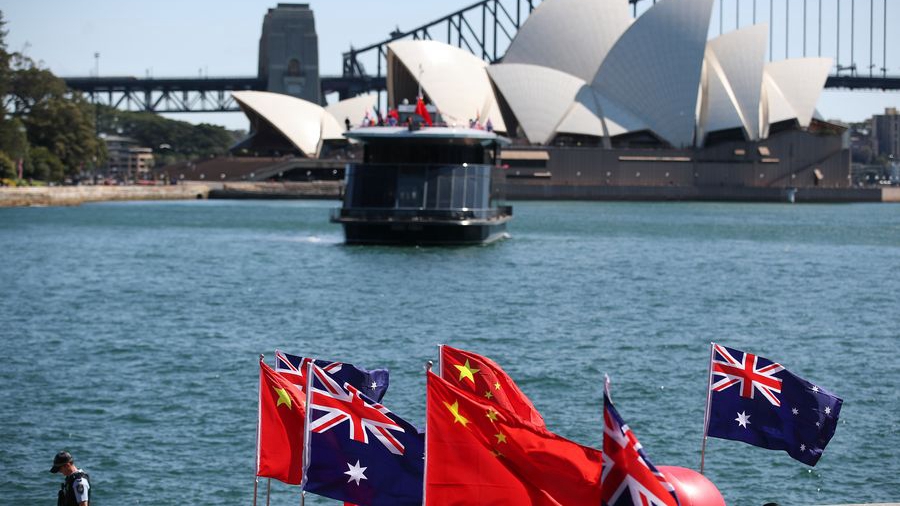
The Chinese and Australian national flags in Sydney, Australia. [Photo/Xinhua]
By Zhang Zhouxiang
Asked at a news conference on Wednesday if he had received an invitation for an official visit to China, Australian Prime Minister Anthony Albanese said, "No is the answer in terms of the question". He, however, added that dialogue is a good idea.
Dialogue is definitely good, especially between an influential nation in the southern hemisphere and its largest goods and services trade partner. China, as a world plant that needs large imports of ore and coal, and Australia, as a large exporter of materials for industrial use, can form a good symbiotic relationship and complementary economic structure.
As The Australian newspaper noted, 2023 marks the 50th anniversary of former Australian prime minister Gough Whitlam's visit to China, the first in the two nations' diplomatic history. Albanese's predecessor Scott Morrison never stepped on Chinese soil, while his predecessor Malcolm Turnbull did not visit China a second time, after the first one in May 2018.
By blindly following the US, the two Australian PMs have led their nation astray onto a path against its interests. Australian politicians have hyped up the "China threat theory", curbed normal bilateral economic and trade exchanges on the false pretext of "national security", and even supported the US in its quest for "origin-tracing" of the COVID-19 pandemic under a presumption that China was to blame.
It was not until Albanese took office that Sino-Australian ties have improved, even though obstacles, such as the latter's nuclear submarine plan under the framework of AUKUS, exist.
The two nations need more communication and face-to-face talks are the best. As early as February, China's Ministry of Commerce spokesperson said that they had already invited Australian Minister for Trade and Tourism Don Farrell to visit China and the latter had accepted the invite. We hope his visit marks further progress in improving bilateral ties.

 中文
中文



